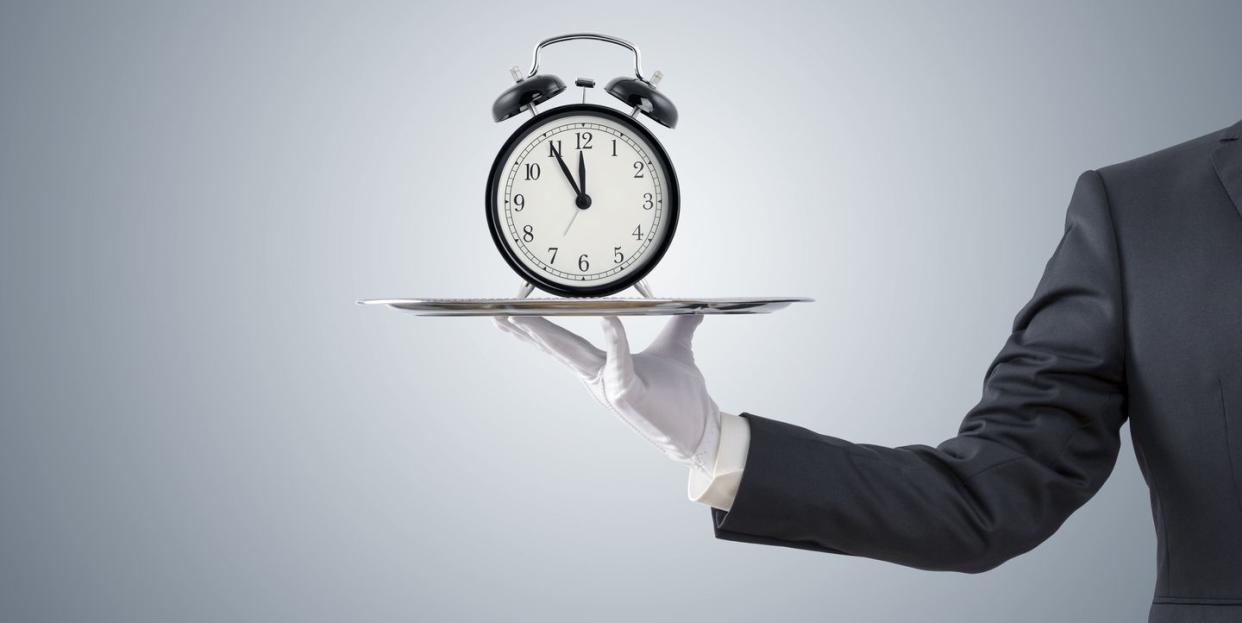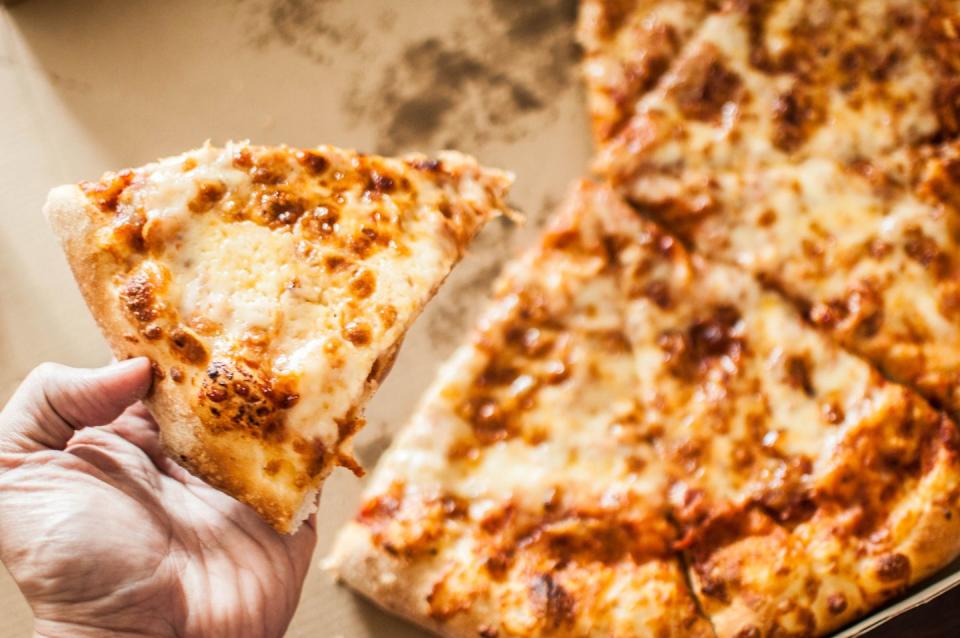The One Meal a Day Diet Oversimplifies Nutrition—and May Backfire

The “one meal a day” diet (also known as OMAD), as the name implies, means that you eat once a day and only once a day.
Proponents of the OMAD diet claim that it can lead to weight loss, naturally, but also better focus and enhanced productivity.
First, let’s look at the weight loss claim.
In intermittent fasting terms, OMAD is a 23:1 approach. That means you fast—or don’t consume anything with calories—for 23 hours and do eat during the other available hour of the day.
There are two main camps within OMAD. The first advocates that because you’re only eating for one hour out of the day, you can eat whatever you want during that hour. The second recommends eating healthful foods.

Could either of these approaches help you lose weight? Sure.
That’s because you can only eat so much in one hour, regardless of if that foods is a large meat lovers pizza with extra cheese or a few grilled chicken breasts and a pile of steamed broccoli.
In other words, you’ll eat drastically less—regardless of what you’re eating—and by eating less you’ll likely lose weight.
But good nutrition is about so much more than just total calories consumed. Quality matters.

Consider a recent study published in the British Medical Journal that found that people who eat four servings of ultra-processed foods daily had a 62 percent higher risk of dying from all causes compared with those who ate only two servings per day.
The fact that some people use OMAD to blindly eat whatever they want (say, four servings of mac ‘n’ cheese, for example) doesn’t promote proper nutrition and, in fact, hinders them.
On the flipside, if you adopt the OMAD diet and try to eat nutrient-rich foods during your one hour of eating, it’s still hard to consume all the nutrients your body needs in a day. That’s because nutrient-rich foods tend to be loaded with fiber and protein, which fill you up fast during a meal.
Yes, this makes it nearly impossible to overeat, but even though you’re physically full, that doesn’t mean you’ve taken in an adequate amount of nutrients.

Frances Largeman-Roth, R.D.N., and author of Eating in Color, agrees with me. “It doesn’t seem possible to get all of your nutrients in during one sitting. People are already getting so few fruits and vegetables these days (only 1 in 10 of us gets enough), I’d hate to put additional and seemingly purposeless restrictions on anyone.”
And then there’s the fact that active people require more nutrients than sedentary people.
“ I can’t imagine that it’s easy for most athletes and active people to feel their best on a diet like this,” Largeman-Roth says. “If you can’t refuel after a workout, how can your body repair itself? Further, a one meal a day diet certainly isn’t appropriate for teens, people with diabetes or any medical condition, and it would be ill-advised for anyone with a history of disordered eating.”
And, to that point, food isn’t just utilitarian. Eating should be enjoyable act—not something you check off a to-do list.

“I think of the one-day diet as trying to ask for ‘extra credit’ in math class after you’ve failed everything,” says Heather Leidy, Ph.D., Assistant Professor in the Department of Nutritional Sciences of at the University of Texas, Austin. “ Eating healthy to promote health and well-being is not going to occur with a single day and a few ‘foods to avoid.” It’s a lifestyle that requires a daily commitment.”
Where I can confirm the OMAD will help you?
It will surely free up time during your day—preparing, cooking, and eating requires time.

And, maybe, with that extra free time you’ll undertake pursuits that’ll heighten your productivity.
Or, maybe (and certainly more likely), you’ll spend that extra free time imagining how great your life was before you started the OMAD diet.
You Might Also Like

